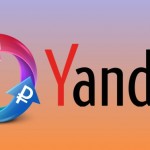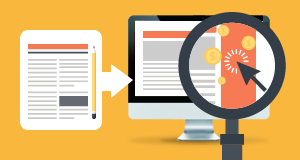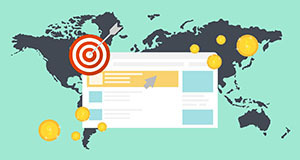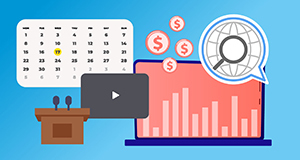There’s no doubt that Google’s newly announced Enhanced Campaigns format within AdWords will be a game changer. For international businesses, one of the obvious questions to pose therefore is “how will this affect my multinational operations?”
I think it’s safe to say that from the ground up there will many benefits and pitfalls yet to even be thought of and will only be revealed by testing in the real world. However, in general you will find some changes that you’ll find will take time to get used to and you’ll also enjoy some newfound time-saving opportunities.
One thing to be very clear on is that, right now, you will need to have separate campaigns should you be using different ad/keyword languages or different messaging of any kind depending on location or any other targeting method (other than device). This element of AdWords has not changed.
Also, this campaign setup is strictly related to Search Network campaigns – Display campaigns are changing much less radically.
What You Might Not Like
If your business is solely based on mobile traffic and so only have a mobile site, you’ll be stuck. No mobile-only campaigns will be possible. You will still need separate campaigns if you wish to have mobile ads on or off at different periods or if you want to have different creative for different targets (e.g. time or location). If you advertise currently on mobile, the way in which you structure campaigns will need to differ from other search engines in that you will need to take into account how mobile traffic has performed on each keyword and structure accordingly. If you don’t currently and don’t intend to advertise on mobile, the impact on you of these changes are pretty much entirely positive.
For the time being at least, you will not so easily be able to copy Google content into Bing or Yandex or Yahoo as you did before (if you advertise on mobile devices). A lot of analysis will potentially be necessary to get the campaigns to perform as you’d wish and in the process of upgrading from split campaigns to device-merged campaigns.
The Good Stuff
The overarching benefit Google intended was a reduced need to duplicate campaigns. This appears to have been achieved and will be an obvious time-saver – or at least bring down the scale of your AdWords Editor uploads – along with other PPC goodies like ad group-level sitelinks and individual review, reporting and control over sitelinks.
If you love data, you’re in luck since you’re going to have a host of further stats and figures to delve into at the ad group level in particular. Apart from the above sitelink-level data, there will also be the different ads by device (and by app) you will need to assess if you’re to evolve messaging plus device-level performance data to help you decide on mobile bid increments at the campaign level. Then you will want to assess geographical, time and day performance patterns to get bid increments correct for these variables (again, at the campaign level).
If you are ahead of the mobile curve, already developing apps and dedicated web designs, you’ll get a lot out of the Enhanced Campaigns since they will save you a lot of time as you avoid duplicating campaigns.
From an international perspective, you could benefit from more time-saving options that might immediately occur to you. For example, you could target multiple countries with shared languages (e.g. Germany, Austria and Switzerland) and bidding different location-based multipliers for each based on performance. (Health Warning: This will only be a sensible thing to do if the keywords, landing pages and messaging all match the local markets. Neighbouring markets may still be radically different even if they share a language.)
You can also target users that are within a configurable distance of any location you choose. So you may find benefit in:
- targeting users near a border when official languages differ between countries (especially if the border is porous or if you know populations mix a lot in that area).
- advertising services or products in and around airports and train stations.
- driving conversions at bricks & mortar sites with mobile-only ad extensions or offer-based sitelinks serving when the stores are open.
A complex but powerful example that now opens up to advertisers is one that stems from sports betting (but there could be similar approaches used in other industries):
- You could have a “Bayern Munich” campaign and each match day raise your bids (let’s say 40% more) on the stadium location they’re playing in across Europe – to include Champions League fixtures as well as local league/cup games – using mobile ads to push for pre-game and in-game bets as fans are approaching the stadium.
- You can raise bids too on the competing cities by less than the stadium bid (e.g. 20%) all within the same campaign (subject to language limitations).
- So in this case, all you need to edit from match to match is the active ad group(s) – you’ll have already set them up ready for each predictable fixture – the ads, if you want to include sample odds, and the bid increments by location.
With the introduction of call conversions and, eventually, cross-device conversion data, we’re looking at a bright future full of potential. The above ideas barely scratch the surface.
Conclusion
It seems to me that the new Google campaign design will give us a much better tool to cope with the increasingly complex demands of effectively communicating with users who fluidly use the Web across devices and in different contexts. Personally, I’m really looking forward to this dawning new age of PPC marketing and discovering where it can take us. If you’ve recoiled in horror at the recent announcement, you’ll probably find you can, in fact, get a lot more out of your ads than you could before. So don’t be alarmed and I say lets think creatively to get as much out of them as possible.
Steven Plimmer
Latest posts by Steven Plimmer (see all)
- How Google’s Enhanced Campaigns Will Affect International Search - March 4, 2013
- Why display is the path to growth, no matter how big you are - December 11, 2012
- Neighbours Are Not Twins – Why Knowing *Every* Market Is Crucial - November 26, 2012







